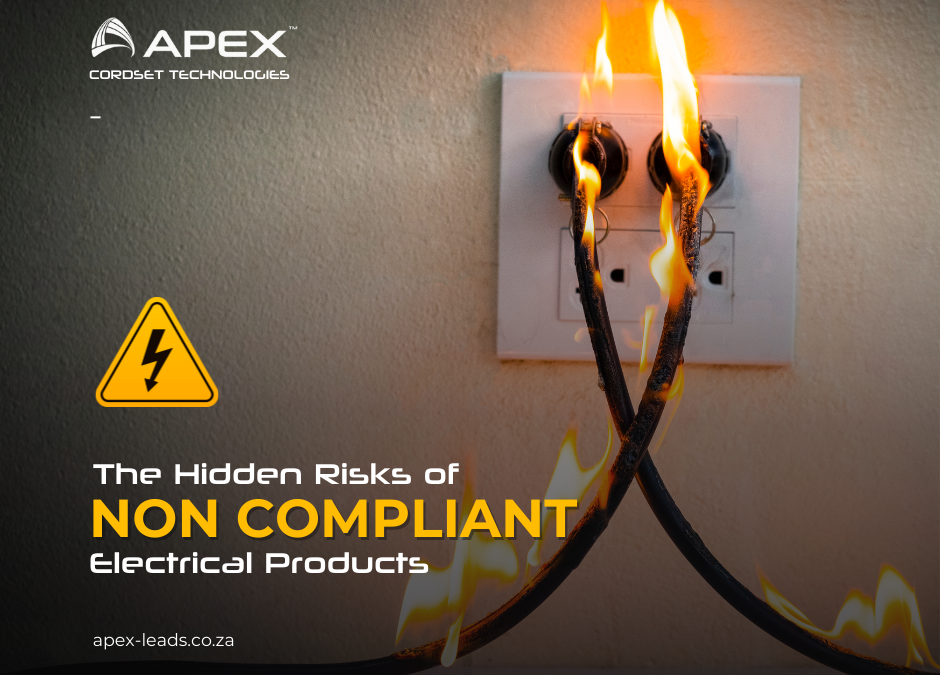Navigating the Perils of Low-cost Electrical Products in Trying Economic Times
In times where every cent counts, many consumers are drawn to the allure of low-priced electrical goods. However, beneath the surface of these bargains lie hidden dangers and potential hazards that could compromise not only finances, but also safety. Through this insightful series, Willem Olivier, Sales & Marketing Executive, will delve deep into the risks associated with purchasing cheap, potentially non-compliant electrical products, shedding light on the critical factors to consider when making such decisions. Keep a look out for the articles as Willem shares his knowledge and insights of the trade-offs between savings and safety.
The Hidden Risks of Non-Compliant Electrical Products
In an age where budget constraints often dictate our purchasing decisions, it’s crucial to shed light on the hidden dangers that non-compliant electrical products can pose.
Here are some of the perils that non-compliant electrical products bring into the spotlight:
In conclusion, non-compliant electrical products come with a broad spectrum of risks, including safety hazards, property damage, health concerns, financial loss, and legal consequences. Both consumers and businesses are reminded of the paramount importance of adhering to safety standards and investing in quality, compliant electrical products. Don’t let short-term savings jeopardise long-term well-being and success. Safety always comes first. ⚡🛡️

